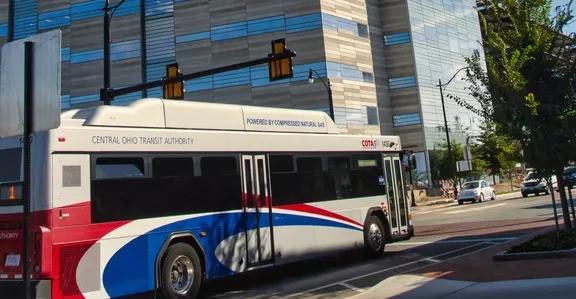Columbus, Ohio is to benefit from a US$38.1 million traffic management system to replace the one installed in the 1970s to allow the city to respond more quickly to problem areas and speed up travel throughout Columbus and even in its suburbs. The new system will wrap all signals into a single network. More data will funnel to new software in the traffic-management center, where operators can decide how to handle traffic congestion. Nearly 500 miles of fibre-optic cable will run to most traffic signals, and
April 3, 2013
Read time: 2 mins
Columbus, Ohio is to benefit from a US$38.1 million traffic management system to replace the one installed in the 1970s to allow the city to respond more quickly to problem areas and speed up travel throughout Columbus and even in its suburbs.
The new system will wrap all signals into a single network. More data will funnel to new software in the traffic-management center, where operators can decide how to handle traffic congestion.
Nearly 500 miles of fibre-optic cable will run to most traffic signals, and others will sync wirelessly with the new system. The number of cameras posted around the city will triple from fifty to 150, while six, 60-inch monitors will display camera feeds and other data will go up in the new command centre.
“It definitely will make the commute smoother,” said Patti Austin, a city planning and operations administrator.
Upgraded software will give the city power to move traffic along during big events, Austin said.
“We’re pretty limited in what we can do certain times of day,” said project manager Ryan Bollo. “This new software will be able to cover whole corridors and have pre-timed systems we can run any time of day.”
The new system will wrap all signals into a single network. More data will funnel to new software in the traffic-management center, where operators can decide how to handle traffic congestion.
Nearly 500 miles of fibre-optic cable will run to most traffic signals, and others will sync wirelessly with the new system. The number of cameras posted around the city will triple from fifty to 150, while six, 60-inch monitors will display camera feeds and other data will go up in the new command centre.
“It definitely will make the commute smoother,” said Patti Austin, a city planning and operations administrator.
Upgraded software will give the city power to move traffic along during big events, Austin said.
“We’re pretty limited in what we can do certain times of day,” said project manager Ryan Bollo. “This new software will be able to cover whole corridors and have pre-timed systems we can run any time of day.”









